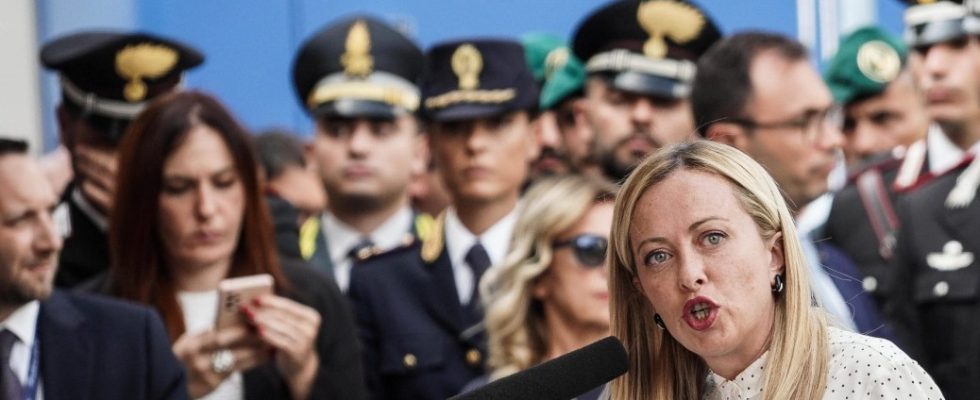The list that the Italian government has decided to use to combat juvenile delinquency is long. Tougher penalties for criminals aged 14 and over, more offenses in the criminal code and bans on staying in certain places. In addition: Pre-trial detention for young people, which can be ordered for trafficking small amounts of drugs or for illegally carrying weapons, including knives. And it goes even further: In the future, authorities will even be entitled to ban minors who have committed crimes from using smartphones – and they can threaten parents with up to two years in prison if their children do not come to school (so far there has only been one A fine of 30 euros is envisaged).
Only when it came to the threshold for criminal responsibility did Prime Minister Giorgia Meloni’s government shy away from Deputy Prime Minister Matteo Salvini’s demand to lower it from 14 to twelve years at its meeting on Thursday. The leader of the right-wing populist Lega is a key driver of the reforms that Meloni presented at a press conference immediately before her departure for the G-20 summit in Asia.
The new measures clearly aim to bring the punishment of young people closer to that of adults. That would be a system change. The Italian Youth Criminal Procedure Code from 1988 is considered modern and exemplary by liberal criminal lawyers in Europe; it is based on the conviction that it is better for young people not to end up in prison. Instead, whenever possible, the judiciary seeks alternative solutions. For example, rehabilitation options are discussed in court, which may have an impact on a (lower) sentence. Accordingly, compared to international standards, there are particularly few young people in custody in Italy.
At the same time, the country has a growing problem with youth gangs. These operate primarily in the outskirts of metropolises. This summer, gang rapes, drug wars and violent excesses by young people in Naples, Milan, Palermo and elsewhere made the national headlines; The media reported extensively on the activities of so-called “baby gangs”.
But the right-wing coalition of Meloni and Salvini came into office almost a year ago with the promise of more law and order to enforce. Salvini in particular recently called for this; before the cabinet decision, he made headlines with the sentence: “A 14-year-old who runs around with a knife or a pistol knows what he is doing, and if he commits a crime, he has to pay like one 50 year old.”
In the south of Italy there is a dramatically high number of school dropouts
Meloni also argues that the previous governments avoided consistently combating the problem. That will change now. “Youth crime is spreading like an oil stain,” says the Prime Minister. By taking tough measures against parents whose children do not go to school, Meloni is making a connection to the youth unemployment that has been high for years compared to other countries and to the deficits in the education system. In southern Italy in particular, there is a dramatically high number of school dropouts.
The Prime Minister has clearly made the issue a priority project for her second year in government. Immediately after the summer break, she had already traveled to two known problem areas, first to Tor Bella Monaca in the east of Rome. The district with its monstrous prefab buildings is now considered one of the main hubs for hard drugs in Europe. An anti-mafia priest working there almost fell victim to an assassination a few days ago.
Melonis attracted even more attention – despite death threats – visit to the city of Caivano north of Naples. There, a youth gang had recently raped two underage girls; the case was discussed across the country. The head of government was invited by the local priest Maurizio Patriciello, who is committed to social projects in the area and therefore lives under police protection. Meloni promised that the state would no longer tolerate legal vacuums. The new law was named “Caivano” and the government also allocated funds specifically for this problem area.
The decree applies immediately, but still has to be cast into law in parliament. The opposition protests, and fierce debates are guaranteed.
Editor’s note: An earlier version of this article stated that the aforementioned decree now allows for preventive detention of children from the age of six instead of the previous age of nine. That was wrong. In fact, the decree is intended to give detention judges the opportunity to take offenders with a minimum age of 14 years into custody for expected prison sentences of six years or more. We have corrected this.

